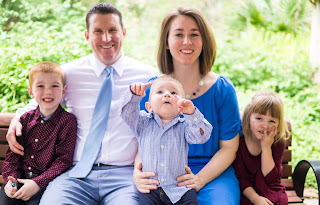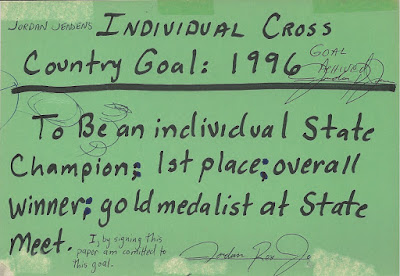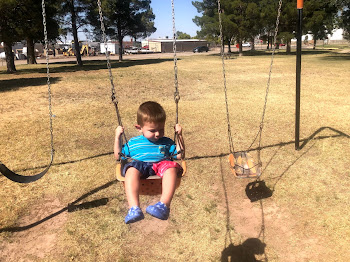 |
Mohandas Karamchand Gandhi
1869-1948
|
Perhaps more than any other person, Mohandas Gandhi is responsible for India gaining its freedom from British rule back in 1947. Amazingly, however, Gandhi
never held political office. Although trained in the law, he was never a President, Premier, Prime Minister, or King. Nor was he a legislator, governor, prefect, or military officer. He was a regular citizen... albeit with unusual vision, focus, determination, and persistence.
This legacy of great influence through self-direction makes Gandhi one of the greatest icons of Self-Action Leadership the world has ever known. He demonstrated through example that the moral authority of one's informal influence can, in some cases, prove far more potent and powerful than the formal authority derived from an organizational title or position.
This concept explains why people like Socrates, Plato, Aristotle, Homer, Shakespeare, Mozart, Joan of Arc, Florence Nightingale, Frederick Douglass, Harriet Tubman, MLK, Gandhi, and others like them are more famous and influential today than a whole slew of high-ranking political and military leaders from the past. In the long-run, the extent of one's influence is usually marked more by character and contribution than it is by title or position.
Sadly, in 1948, Gandhi was assassinated for his efforts, but not before India became an Independent Nation. His legacy—which will live on forever—becomes more burnished with each passing year and decade.
Gandhi once famously remarked that:
"You must be the Change You wish to see in the World."
 |
The British Empire controlled
India from 1858-1947 |
Gandhi recognized that he
himself had no formal authority or power to
change the British Empire and its sometimes heavy-handed colonial policies. However, he also recognized that as he worked to change
himself, his influence over others began to naturally expand. As he continued this cycle of self-change leading to expanded influence on others, he was, over the course of several decades able to influence a movement that eventually led to a tangible and significant shift in British policy, thus freeing himself and his countrymen from the direct control of Britain, which they had held like an iron vice since 1858.
How did Gandhi accomplish such a monumental thing without any political authority or military power?
 |
Thanks in large part to Gandhi, India gained
its Independence from Britain on August 15, 1947 |
The answer is: by hearkening to his conscience and exercising epic amounts of personal responsibility
over long periods of time. Gandhi was disciplined, hard working, focused, determined, and persistent. He had a vision of a free India, and he refused to give up until he had either achieved his objective or reached the end of his life. Fortunately, he was able to accomplish his goal before his death.
Gandhi's advice to "Be the Change we wish to see in the World" is one of the most fundamental principles championed by
Freedom Focused and the
Self-Action Leadership Theory and Model. Another core belief of ours is summed up in the words of the Greek philosopher, Plutarch, and then reiterated by the twentieth century psychologist, Otto Rank:
"What you achieve inwardly changes your outer reality."
Unfortunately, far too many voices in our world today focus on external problems instead of internal changes. While it is no secret that external problems are real and need to be addressed, why is it that so many people fail to comprehend (or accept) the reality that the only way to solve external problems is to initiate internal changes?
The answer is pretty simple: because it is much, Much, MUCH easier to complain about external problems than it is to seriously commit to internal changes. Anyone can yell, scream, complain, and blame others for the way things are
out there in one's school, community, organization, state, or nation. And sadly, many people do complain about and blame others—endlessly—about external problems while simultaneously doing virtually nothing to initiate real internal changes. If you don't believe me, just turn on any news channel and listen to the endless blather of vitriolic blame volleyed back-and-forth from contemporary pundits representing a variety of different political persuasions.
You know what I am talking about because you've heard your share of it.
Unfortunately, it is the relatively rare individual who takes complete personal responsibility for his or her internal state of being and then goes to work indefatigably on one's own personal and professional growth. And it is these same "few" who invariably end up making the most positive and productive contributions towards meaningful external change.
"Where in the world are these rare, proactive people" you ask?
Good question!
Often times society isn't always sure exactly who they are because the news media isn't very interested in giving air time to individuals who are quietly, humbly, conscientiously, and effectively going about their business trying to be their very best selves and make a difference along the way. Sadly, the news media considers those kinds of people and their lives and careers "too boring" and insufficiently provocative to bother covering. But I'll bet that you know someone like this. Perhaps YOU even qualify as such a person, however imperfectly.
Any wise and honest person knows that it is
those people who ensure that our world continues to turn with at least some semblance of sanity. If you watch the news, it may appear that a few loud mouths and a collection of fringe extremists are continually running the show; but thankfully, the reality is more complex than whatever mirage the media may be portraying at any given moment in time. This reality is reassuring. While the news media does provide a bully pulpit for the benefit of loud mouths and fringe extremists, the people who ensure that the show always goes on are usually not the ones in the spotlight.
And now, back to Gandhi's great quote, and how it has continually influenced me throughout my life.
For the most part, and thanks to my wonderful parents, siblings, extended family members, teachers, and friends, I was blessed with a happy, innocent, adventurous, and in many ways an almost idyllic childhood.
Despite these fortunate favors of youth, I still had to learn the hard way growing up the same lesson that all of us learn eventually... that I cannot always depend on other people to treat me the way I want to be treated. I learned further that if I wanted to influence and be respected by others, I would have to earn it the hard way—bit-by-bit over time.
For Example: I learned in second, seventh, eighth, and twelfth grades that bullies existed, and that if I didn't stand up for myself, I would be bullied for the rest of my life. I also learned that there were ways to stand up for myself—and put an end to bullying—without resorting to physical violence. I further discovered I could seek out others who were being bullied and show them kindness, compassion, and respect. And I noticed it felt good inside to do so.
Growing up, I discovered that people are often unkind and disrespectful to "the new guy" or the youngest or weakest person in a class or group. I likewise learned that I didn't have to carry on that negative tradition. Instead, I could choose to be both kind and respectful to "newbies" and other, less popular members of the group.
I could choose to Be the Change I Wished to See in the World.
As an adult professional, I learned that my colleagues were sometimes prone to inappropriate, offensive, or even dishonest speech and behavior. I also learned that I could respectfully confront them about their conduct in an effort to influence a modification thereof—at least around me. I also learned that taking such a course could sometimes win their respect, not their derision. And sometimes it could earn their derision, not their respect. But either way—and most importantly—I learned that what other people thought about me was less important than what I thought about myself; and I always thought more highly of myself when I stood up for honesty and other conduct that was right and fair than I did when I fell prey to negative peer pressure or allowed myself to get bullied by bad behavior.
I could choose to Be the Change I Wished to See in the World.
As a substitute teacher—and later as a full-time teacher—I learned that many educators like to spend their discretionary time complaining and otherwise gossiping about what is wrong with their colleagues, supervisors, students, and the system. I also learned I could re-direct negative communications and re-frame them positively, as well as avoid gossip sessions as much as possible. I further discovered I could always accomplish more by focusing on my own sphere of control and influence than I ever could by sitting around complaining about other people and things beyond my control.
I could choose to Be the Change I Wished to See in the World.
Throughout my life, I have abhorred litter. I have also learned that picking up trash
myself does more to help the world's littering problem than
complaining about it ever has, or ever will.
I could choose to Be the Change I Wished to See in the World.
I have failed over, and over, and over again in my efforts to find love and career success. I have also learned that blaming other people or circumstances beyond my control does absolutely nothing to help me succeed. Likewise, I have learned that never giving up and continually refining my approach along the way eventually leads me to find success in whatever undertaking I pursue.
I could choose to Be the Change I Wished to See in the World.
In short, I have learned over, and over, and over again that the BEST response to virtually every problem in life is not to point the finger of blame at others (as easy, fun, tempting, and entertaining as that approach often is), but to first look inward and examine myself to determine where I might, in fact, be part of the problem—and then go to work to improve and/or fix my own thought processes, speech, and conduct.
This doesn't mean that others aren't sometimes legitimately to blame for issues and problems in life; sometimes they are! It merely means that I will always find greater success in the long-run if I focus most of my attention on what I can directly control or influence, rather than spending time and effort complaining about what I cannot control.
The world is full of finger pointers who are convinced that everyone in the world is to blame for their problems; everyone, that is,
except themselves. Self-action leaders recognize that no one is perfect, including oneself. As such, we all have a lifetime of opportunity to go to work on ourselves in an effort to bring about positive change in the only truly tenable way—from the INSIDE-OUT.
The next time you find yourself pointing the finger of blame at someone else, or complaining about something over which you have no control, I invite you to interrupt that negative pattern by standing up and taking action on some aspect of self-improvement over which you can control. While it might not be easy to take that first step towards positive change, I promise you will feel better after you are moving down the road toward building positive momentum. And you just never know where such an action might lead you in the future.
You may never free your country from tyranny like Gandhi did; but Self-Action Leadership can empower you to free yourself from your own greatest enemy—YOURSELF—so that you can begin to earn and enjoy the sweet personal and professional victories within the realms of your own, unique sphere of control and influence.
No matter what anyone may have told you in the past, rarely will your greatest enemy in life be someone else who exists out there somewhere. More often than not, your greatest enemy is inside of your own heart, mind, and soul. That is the bad news. The good news is that YOU always possess the freedom, control, and power to fight against that enemy until you eventually WIN. As someone once said: "Look in the mirror if you want to see your greatest enemy and your best friend."
Are you fighting the right war against the right enemy in your own life and career? If not, then
Freedom Focused can help. And if so, then
Freedom Focused can also help.
Click
HERE to learn how we can help.
.........................
Tune in NEXT Wednesday for another article on a Self-Action Leadership related topic.
And if you liked this blog post, please share it with your family, friends, colleagues, and students—and encourage them to sign up to receive future articles for FREE every Wednesday.
To sign up, please email freedomfocused@gmail.com and say SUBSCRIBE, or just YES, and we will ensure you receive a link to each new blog article every Wednesday.






























